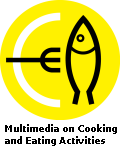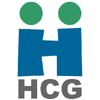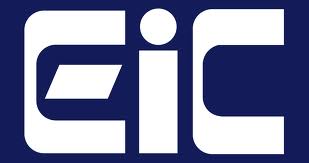CEA2014 | Seattle, WA, US, September 14, 2014
in conjunction with the 2014 ACM International Joint Conference on Pervasive and Ubiquitous Computing (UbiComp 2014)
Call for Papers
Call for full paperCall for short paper
Cooking is one of the most fundamental activities of humankind. It is strongly related to social interactions. It is not only connected with the joy of eating but also deeply affects various aspects of human life such as health, culinary art, entertainment, and human communication. Cooking at home requires experience and knowledge. They may also need support for food-logging and menu planning for their family health. Needless to say, support for a good and enjoyable meal would improve the quality of life. Systematic cooking/eating support for elderly or physically challenged people is also significantly important.
Since people cook by manipulating foods, watching their conditions, listening to the sounds, smelling the aromas, and tasting it, a cooking support system also requires multiple sensing capabilities. Thanks to modern technology, the traditional kitchen is becoming more intelligent. Recently, home appliances such as refrigerators, microwave ovens, and cooking stoves, are equipped with multiple sensing devices and a computing processor. Some may even have additional devices such as a camera, a microphone, and a RF-ID tag reader built in. Reflecting this trend, researches on supporting cooking and eating activities have started throughout the world individually.
CEA has been aiming to provide an opportunity for such research groups to discover each other, introduce their trials, and discuss their status and where they should go. The research community of CEA is truly interdisciplinary, including health science, domestic science, and cultural science. Even if we limit ourselves to computer science, there are related works in multimedia, human-computer interaction, natural language processing, and artificial intelligence. At this year’s meeting, CEA plans to organize a workshop in conjunction with UbiComp2014 to have a discussion from the viewpoint of ubiquitous and pervasive computing system, among other perspectives.
Topics
The workshop welcomes contributions in, but not limited to, the following topics:
- Application for cooking and eating support
- Cooking archiving and recognition
- Learning contents creation for cooking
- Analysis of cooking video
- Recipe image/video retrieval
- Analysis and utilization of cooking recipes
- Menu planning, dietary management, and food logging
- Artificial agent for cooking/eating activity
- Sensing of taste/ smell/ texture
- Social Interactions
- Ubiquitous environment and interface in kitchen
- Intelligent home appliance
- Cooking navigation interface for the dementia and physically challenged person support
- Multimedia learning contents for dietary
- Multimedia information service for food safety and security
- Analysis of Web contents on cooking and eating activities
- Case-based reasoning for cooking and eating activities
- AI technologies applied for cooking and eating activities
Review criteria and process
Regular session:
Each paper submission will be reviewed by more than two experts.
Submissions are reviewed based on:
- Originality of the content
- Quality of the content
- Relevance to the theme
- Clarity of the written presentation
 |
 |
 |